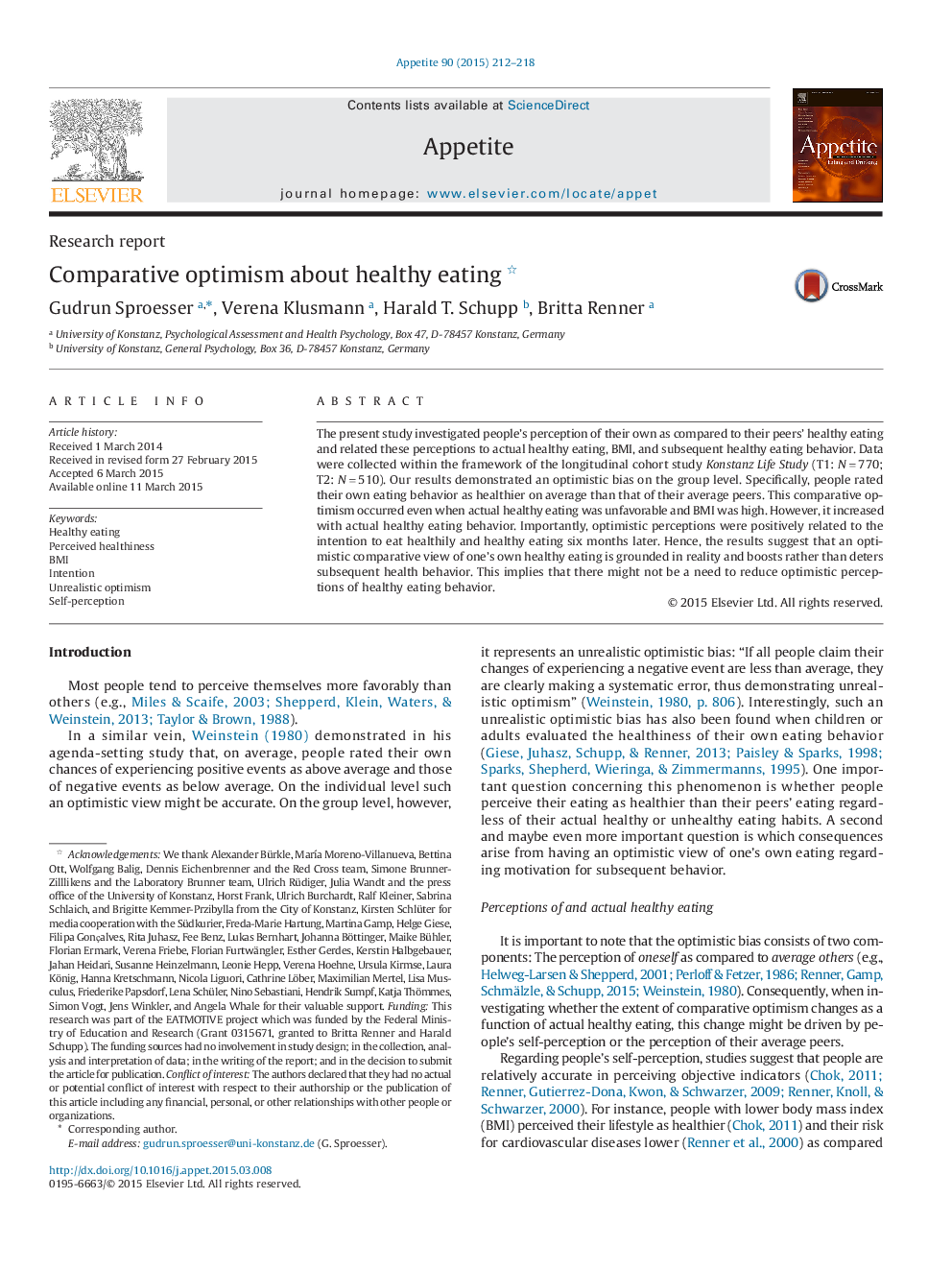| Article ID | Journal | Published Year | Pages | File Type |
|---|---|---|---|---|
| 7308955 | Appetite | 2015 | 7 Pages |
Abstract
The present study investigated people's perception of their own as compared to their peers' healthy eating and related these perceptions to actual healthy eating, BMI, and subsequent healthy eating behavior. Data were collected within the framework of the longitudinal cohort study Konstanz Life Study (T1: Nâ=â770; T2: Nâ=â510). Our results demonstrated an optimistic bias on the group level. Specifically, people rated their own eating behavior as healthier on average than that of their average peers. This comparative optimism occurred even when actual healthy eating was unfavorable and BMI was high. However, it increased with actual healthy eating behavior. Importantly, optimistic perceptions were positively related to the intention to eat healthily and healthy eating six months later. Hence, the results suggest that an optimistic comparative view of one's own healthy eating is grounded in reality and boosts rather than deters subsequent health behavior. This implies that there might not be a need to reduce optimistic perceptions of healthy eating behavior.
Related Topics
Life Sciences
Agricultural and Biological Sciences
Food Science
Authors
Gudrun Sproesser, Verena Klusmann, Harald T. Schupp, Britta Renner,
